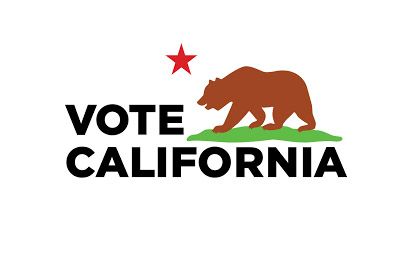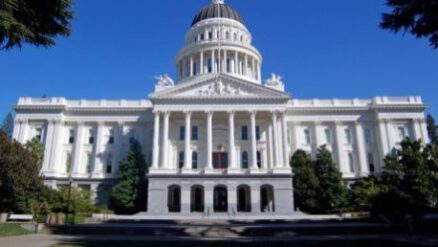An important provision of Proposition 64 was the right for local jurisdictions to determine whether to ban, tax, and/or regulate cannabis within their local jurisdiction. This power extends to what kind of cannabis businesses will be permitted, how many will be permitted, when it will be permitted, and how the operators of the cannabis businesses will be selected. Because of this freedom, each jurisdiction can be completely unique to their own community. In fact, according to the California Department of Cannabis Control, over 60% of the 539 cities and counties in the State continue to prohibit the retail sale of cannabis within their jurisdiction six years after legalization of cannabis at a State level by the voters.
On November 8, 2022, more than twenty California cities and four counties have some form of cannabis taxation and/or regulation on the ballot. Whether by voter initiative, or City Council or Board of Supervisors action, many voters will be making a statement about cannabis in their local jurisdiction.
A popular method of testing the waters of citizen support for commercial cannabis is to place a cannabis tax measure on the ballot. If the tax is adopted, then the City or County elected officials will likely pursue cannabis regulation. If the tax fails, the City or County will not pursue cannabis regulation and it is likely a voter initiative will be required to make cannabis businesses legal in that jurisdiction.
Regulation by voter initiative is not in the local jurisdiction’s best interest as it usually removes the elected officials from any future decision-making even if a local jurisdiction wants to increase the number of cannabis businesses or provide for additional locations for cannabis businesses. As has happened in several cities, both the Cities of Huntington Beach and El Segundo began discussions of cannabis regulations and taxation in direct response to the threat of a voter initiative.
In 2022, the voter initiative process placed cannabis regulations on the ballot in at least four cities in Los Angeles County: Hermosa Beach, Manhattan Beach, Redondo Beach, and South El Monte. The City Council of Manhattan Beach placed a competing ballot measure which would continue the current ban on all cannabis businesses. The City Council of Redondo Beach scheduled a special election in advance of the November 8, 2022, election day and that voter initiative recently failed by a wide margin. The City Councils of Hermosa Beach and South El Monte placed a detailed cannabis tax structure on the ballot to take effect if the initiative is successful.
Three counties have placed a general commercial cannabis tax on the ballot without any potential regulatory provisions. Both the counties of Los Angeles and Sacramento are asking the voters if they support a general cannabis tax without any specific rate or formula, whereas San Diego County has placed on the ballot a very detailed tax structure for voter approval. In all three counties, there are several incorporated cities that have already established regulatory processes for licensed cannabis businesses. In addition, Lassen County has placed a measure on the ballot to permit indoor cultivation on unincorporated county property.
In contrast, most cities have placed a very specific tax structure on the ballot in advance of establishing a regulatory framework. In the largest County in the state, the County of Los Angeles, which includes the largest regulated cannabis market in the state in the City of Los Angeles, several cities have placed cannabis taxes and/or regulations on the ballot. The Cities of Claremont, Baldwin Park, Lynwood City, and Santa Monica have all placed structured cannabis taxes on the ballot, while Cudahy City and El Segundo have separate tax and regulatory measures.
Two cities in Orange County, Huntington Beach and Laguna Woods, have placed a specific cannabis tax structure on the ballot for voter approval. In addition, Avenal (King County), Healdsburg (Sonoma County), Montclair (San Bernardino County), Monterey (Monterey County), Tulare (Tulare County), Woodland (Yolo County), McFarland (Kern County), Corona (Riverside County), Encinitas (San Diego County), and Burlingame (San Mateo County) all have structured cannabis taxes on the ballot. Pacific Grove (Monterey County) has separate tax and regulatory ballot measures. Sausalito (Marin County) has a ballot measure to permit one retail storefront and one delivery-only business. Red Bluff (Tehama County) has a specific regulatory ballot measure placed on the ballot by voter initiative to change the existing cannabis regulation adopted by the Red Bluff City Council. While South Lake Tahoe (El Dorado County) voters will consider replacing the existing cannabis community benefit fee with a tax structure, the Susanville City Council (Lassen County) placed a previously adopted cannabis ordinance on the ballot based on a successful referendum effort by the residents.
In short, County residents and City residents will have an opportunity to weigh in on the cannabis issue and educate their elected Supervisors and Councilmembers in 2022. Unfortunately, these ballot measures only represent a small number of residents in the State of California. However, if the ballot measures pass, the State will be one step closer to meeting the voter’s will in adopting Proposition 64.
Contact us by phone or email to learn more about California cannabis law including state, county or city cannabis licensing and cannabis regulations, cannabis regulatory compliance, and cannabis litigation.
You may also be interested in reading about the various cannabis bills introduced in the California State Legislature in 2022 which have now been signed by Governor Gavin Newsom.


